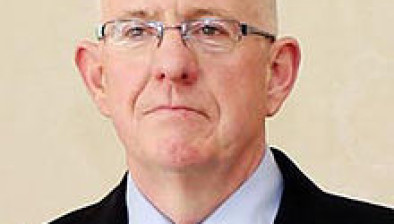England: Man impersonated in remote proceedings found in contempt of court

A justice in the High Court of England and Wales has found a man to be in contempt of court after finding he had repeatedly lied under oath and attempted to have another man pose as him during remote proceedings.
Tesco Stores Ltd raised a claim against Shahin Mouradi alleging acts of dishonesty in another action he was involved in relating to an attempted organised fraud against Tesco. The defendant admitted to some contempts but denied that he had instructed another individual, known as “Abdul”, to impersonate him.
The case was heard by the Honourable Mrs Justice Collins Rice, with Aaron Pulford appearing for the claimant and Jake Taylor for the defendant.
Denied foreknowledge
On 5 October 2019, a road traffic collision took place involving a Tesco van and a car, owned by the defendant, being driven by the defendant’s cousin, Mr Tawfeek. It was undisputed that the collision was one of a series of staged traffic accidents in which Tesco drivers were bribed to participate, with the car owner raising a fraudulent County Court compensation claim against Tesco following the accident.
The hearing of the defendant’s claim took place via video link on 4 December 2020 due to pandemic restrictions. Having become aware of Tesco’s position that the claim was fraudulent, the defendant’s solicitors withdrew from acting three days before. At the hearing, the defendant appeared by audio only, apparently due to problems with the Skype app. However, Mr Tawfeek was also present on the call and stated that whoever was identifying himself to the court as Mr Mouradi was not in fact Mr Mouradi.
At a further hearing on 8 April 2021, the defendant attended in person along with another individual identified only as “Abdul”, who sought permission to act as Mr Mouradi’s McKenzie Friend. Counsel for the claimant identified Abdul as having been the speaker on the 4 December hearing, and the judge refused to permit him to act as a McKenzie Friend.
The defendant admitted that he had permitted Abdul to attend the 4 December hearing with a view to deceiving the court with a knowingly false account, and to lying under oath to the judge at the April hearing when he said it was him who had addressed the court on that earlier occasion. However, he denied foreknowledge that Abdul would impersonate him, and being present at the proceedings sitting next to him whispering instructions.
Deeply improbable
In her decision, Justice Collins Rice said of the 4 December hearing: “I find no room for any doubt in these circumstances that Mr Mouradi and Abdul knew (a) that the court expected to hear from Mr Mouradi in person and (b) that Abdul had no proper expectation of being heard on Mr Mouradi’s behalf. If Mr Mouradi was resolved on Abdul putting his case for him to the court, it was only the subterfuge adopted which could have achieved that.”
She continued: “The narrative that Abdul – a helpful but relatively slight acquaintance – improvised the impersonation, unprompted, unexpectedly and without even telling Mr Mouradi afterwards, is deeply improbable on its own terms. No explanation has ever been suggested as to why, and indeed how, Abdul would have come to do that.”
Noting that at one point on the call two voices appeared on Mr Mouradi’s line, Justice Collins Rice said: “There can be no doubt that Abdul was not alone; there was someone with him. This incident appears to have passed unnoticed at the time; the Judge went on to ask Mr Tawfeek to turn off his video connection, and continued with the issue of verifying Mr Mouradi’s identity. But it now forms a significant part of Tesco’s case that Mr Mouradi knew all about Abdul’s imposture because he was sitting right there with him. Somebody certainly was. No other possibility has been suggested, or suggests itself.”
She concluded: “I am satisfied that Mr Mouradi and Abdul collaborated over the latter’s imposture, before, during and after it. It would appear they were convinced Abdul’s maturity, leadership, confidence and familiarity with legal issues would achieve results at court Mr Mouradi could not hope to achieve on his own even with Abdul as a McKenzie Friend, and that it would give Mr Mouradi the best chance of dealing with the distinctly problematic and dangerous situation he faced. The only way to achieve that (Abdul not, it may be inferred, having rights of audience), was imposture.”
Accordingly, Justice Collins Rice determined that the defendant fell to be sentenced for both his admitted contempts and for allowing Abdul to impersonate him in the remote hearing.











